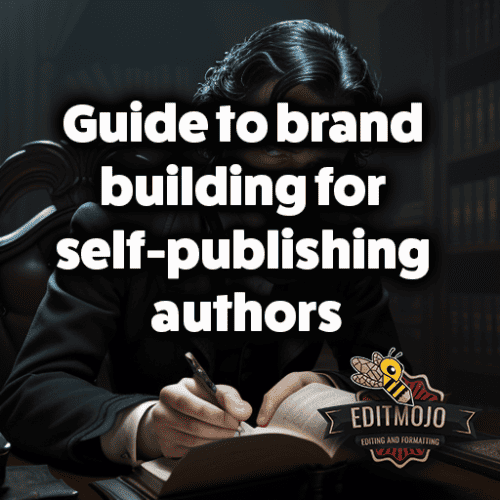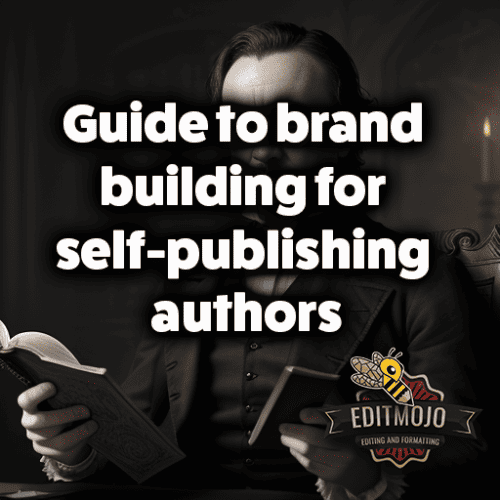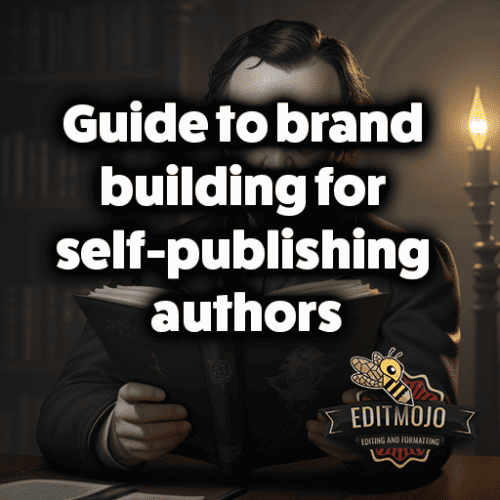Guide to brand building for self-publishing authors
Guide to brand building for self-publishing authors. In the ever-evolving literary landscape, authors no longer just pen their stories—they take charge of their publishing journeys, too. This self-publishing revolution allows creators full control over their work, but with great power comes great responsibility. Among these, one aspect often overlooked but crucial for success is branding. If you’re venturing into the world of self-publishing, consider this your comprehensive guide to brand building.
Key Takeaways Table
| Section | Key Takeaways |
|---|---|
| Understanding the Basics of Branding | A brand represents how your audience perceives you. It’s important to distinguish between your personal brand as an author and the brand of your individual books. |
| The Importance of Branding in Self-Publishing | Branding helps set you apart in a crowded market and can significantly impact your book sales and reader loyalty. |
| Identifying Your Brand | Identify your unique selling proposition and reflect it in your brand voice and image. Consistency is key in all brand messaging. |
| Building Your Author Brand | Pay attention to creating a compelling logo, crafting a fitting slogan, getting professional headshots, and reflecting your brand in all your promotional materials. |
| Building Your Book Brand | The brand of your book should be an extension of your author brand, providing more specific insights into the book or series. |
| Online Presence and Social Media | Utilize social media platforms, maintain a professional author website, and engage in content marketing to increase brand visibility. |
| Community Building and Networking | Engage with your readers, collaborate with other authors, and participate in literary events to build a community around your brand. |
| Leveraging Brand for Book Launches and Promotions | Use your brand to create a buzz around your book, engage with your readers, and drive sales. |
| Protecting and Evolving Your Brand | Be ready to manage criticism gracefully and ensure brand consistency through changes and evolution. |
| Resources and Tools for Brand Building | Utilize resources and tools like Canva, WordPress, and Buffer for various brand-building activities. |
Understanding the Basics of Branding
What is a Brand?
A brand is more than just a catchy logo or a memorable tagline. As Jeff Bezos, the founder of Amazon, famously said, “Your brand is what other people say about you when you’re not in the room.” A brand represents how your audience perceives you—it’s the sum total of their experiences and interactions with you and your work.

Personal Brand vs. Book Brand
When it comes to author branding, there are two parts to consider: the personal brand and the book brand. Your personal brand represents you as an author and what you stand for. It’s your voice, your style, your values. The book brand, on the other hand, pertains specifically to your books—their genre, themes, cover designs, etc. Both are equally important and should work in harmony.
The Influence of Branding
Branding is like the invisible thread that connects you with your readers. It sets expectations and builds trust. For example, think of Stephen King. His brand promises bone-chilling, suspenseful thrillers. A reader picking up a Stephen King novel expects a certain type of experience, and that’s the power of branding.
The Importance of Branding in Self-Publishing
The self-publishing arena is brimming with authors, all vying for readers’ attention. A strong brand sets you apart from the crowd—it’s your unique identifier in a sea of stories. When done right, it can significantly impact your book sales and reader loyalty.
Take Amanda Hocking, for instance. This self-published author built a strong brand around her paranormal and fantasy young adult novels, eventually leading to a multi-million dollar publishing deal. Her success is a testament to the power of effective branding.
Identifying Your Brand
Your Unique Selling Proposition
What sets you apart as an author? This is your unique selling proposition (USP). It could be your distinctive writing style, your unique insights into certain themes, or the unusual worlds you build in your books. Identifying your USP is the first step in creating your brand.
Discovering Your Brand Voice and Image
Your brand voice should be a reflection of who you are. Are you humorous? Intellectual? Inspirational? Choose words, phrases, and tones that align with your personality. Similarly, your brand image—logos, colors, typography—should resonate with your brand voice and genre.

Consistency in Brand Messaging
Remember, consistency is key. Your brand messaging should echo across all platforms and materials, from your social media bios to your book descriptions.
Building Your Author Brand
Creating a Compelling Logo
Your author logo is the visual representation of your brand. It should be distinctive and align with your overall brand image. Hiring a professional graphic designer might be a worthwhile investment here.
Crafting Your Slogan
A good slogan encapsulates the essence of your brand. It could be as simple as “Master of Horror” or as poetic as “Weaving Magic with Words.”
Aligning Your Headshots
Your author headshot is another opportunity to reinforce your brand. A fantasy author might opt for a whimsical backdrop, while a crime novelist might choose a more gritty, noir setting.
Infusing Your Brand Into Your Materials
Every element, from your book covers to your website design, should reflect your brand. Consider hiring professionals for these tasks to ensure quality and cohesion.

Building Your Book Brand
Your book brand should be an extension of your author brand, providing more specific insights into the book or series. Elements like title selection, book cover design, and back cover copy play pivotal roles here.
Consider Harry Potter. J.K. Rowling’s brand revolved around magic, mystery, and the fight between good and evil. This branding resonated across all elements—from the enchanting book titles to the captivating cover art.
Online Presence and Social Media (Guide to brand building for self-publishing authors)
Having a strong online presence is non-negotiable for self-published authors.
Social Media Platforms
Platforms like Twitter, Facebook, and Instagram are powerful tools for brand building. They offer opportunities to interact with readers, share snippets of your work, and show your personality.
Professional Author Website
Your website serves as your online home. It should reflect your brand, offer information about your books, and provide a way for readers to connect with you.
Content Marketing
Blogging and email newsletters allow you to share valuable content with your audience, strengthening your brand and increasing visibility.
Community Building and Networking
Building relationships and a community around your brand is vital. Engage with your readers, collaborate with other authors, and actively participate in literary events.
Leveraging Brand for Book Launches and Promotions
Your brand is your biggest ally during book launches and promotions. Use it to create a buzz around your book, engage with your readers, and drive sales. A positive book review or endorsement can significantly reinforce your brand image.
Protecting and Evolving Your Brand
Brands aren’t static—they evolve. But amid changes, consistency and authenticity are key. Be prepared to handle criticism gracefully and manage your brand reputation tactfully.
Conclusion (Guide to brand building for self-publishing authors)
Branding is a journey—a journey of discovering your unique essence and conveying it to the world. It’s challenging, but with patience and persistence, it can lead to a rewarding connection with your readers and unparalleled success in your self-publishing journey.
Resources and Tools for Brand Building
There are numerous resources available to help you with your brand-building efforts. Some recommendations include Canva for designing materials, WordPress for building your author website, and Buffer for managing your social media.
Remember, your brand is your promise to your reader. It’s your identity. It’s your mark in the literary world. So, go ahead, carve your niche, create your brand, and let your stories soar!
Remember, your brand is not built in a day. Keep experimenting, learning, and evolving. And above all, keep writing.
Top Five Questions and Answers Table
| Questions | Answers |
|---|---|
| What is the importance of branding for self-publishing authors? | Branding sets authors apart in a saturated market, influencing book sales and reader loyalty. |
| What is the difference between personal branding and book branding? | Personal branding represents you as an author, while book branding pertains specifically to your individual books or series. |
| How can I identify my unique selling proposition as an author? | Reflect on what makes you distinctive as an author—it could be your unique writing style, insights, or themes in your books. |
| How can I build my author brand? | Start with identifying your brand voice and image. Then, create a logo, slogan, and align all your promotional materials with your brand. |
| How can social media help in brand building? | Social media platforms are powerful tools for brand visibility. They offer opportunities to interact with readers, share your work, and showcase your personality. |
Top Ten Resources and Further Reading Table
| Resource | Description |
|---|---|
| Canva | An online tool for designing logos, social media posts, book covers, and other promotional materials. |
| WordPress | A platform for creating and maintaining a professional author website. |
| Buffer | A social media management tool that can help schedule posts, analyze performance, and manage all your social media accounts in one place. |
| Personal Branding for Authors: A Simple Definition | An article that offers a simplified explanation of personal branding for authors. |
| How to Create Your Author Brand | A guide by Jane Friedman on creating an author brand. |
| Building a Writer’s Brand | An article on Writer’s Digest about building a |
